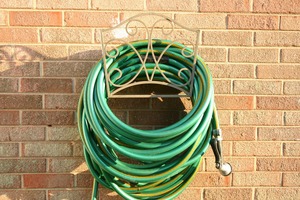Low water pressure can be more than infuriating; it can be a serious issue for homeowners. But what actually causes it?
There are a host of potential causes and different reasons why you might be experiencing low water pressure. And while some pressure concerns aren’t extremely concerning, it may still be a good time to call the professional plumbing expert for an evaluation. Here’s what homeowners should know.
1. Debris building up in pipes
A build-up of debris and minerals such as dirt, sand, and oil in water pipes can slowly but surely result in water pressure getting lower and lower over time. These pollutants enter the pipes via sinks or through small cracks along the piping. And even minerals within the water itself can cause a reduction in the diameter of the pipes and result in low water pressure. CCTV or pipe-sized cameras are great for taking a look in your systems to see if such build-ups are present. Your plumber can then identify what types of clogs are causing low blood pressure in your home.
2. Corrosion in piping
Underground plumbing systems are designed to last for years or even decades. A majority of water pipes have a lifespan of 20+ years. However, they can’t last forever, and nature will eventually begin to erode and corrode the piping materials over time. Corrosion can lead to breakdowns in the pipes themselves, as well as contribute to additional rust or sedation build-up along the lines. These conditions can contribute to low water pressure. A call to your plumbing professional can help you diagnose, repair, or replace any corroded pipes.
3. Small pipes and the use of multiple faucets
Many homeowners have multiple water faucets and bathrooms in their homes, which often results in the simultaneous use of several taps or showers. Unless the main water pipe has been increased in capacity, this inevitably means a reduction in water pressure. In these instances, homeowners can be mindful of their water usage.
4. Partially closed valves
Low water pressure can sometimes be the result of one or more valves being partially closed. They are generally situated near water outlets such as taps and main water valves, making them easy to check. Also, pressure release valves can be partially closed, resulting in reduced water pressure. While you can visually inspect some of these valves yourself, an experienced plumber’s job is to locate any faulty valves and fix the problem.
5. Water leaks
There could be a water leak in pipes if a drop in water pressure is very sudden. Leaks or burst pipes can be easy to spot the obvious causes. However, if an overt water leak is not immediately visible, there could be a concealed underground leak. Get your plumber to inspect your pipes and find the leak immediately.
If you are experiencing gradual or sudden low water pressure in your home, call Pro-Service Plumbing for expert advice and assessment.
